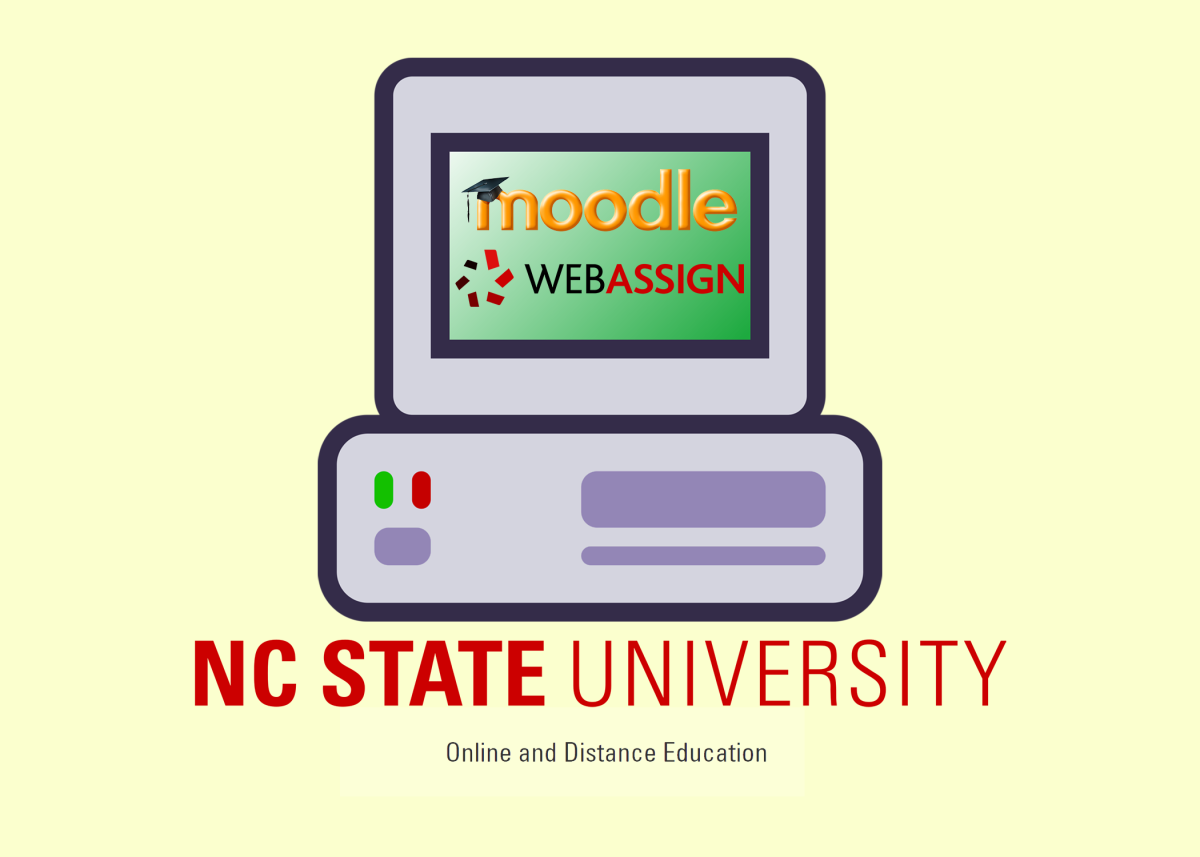Professors and students are expressing their opinions on the increase in NC State’s online education, whose graduate program is ranked first in North Carolina and 15th in the nation. Through innovative technology that allows students to engage in their areas of interest, the Online and Distance Education Program allows students to earn their credits with ease.
Betty Black, a biology professor, has been instructing online courses since 1997 when the University began Project 25, an initiative that was pushed to move more classes online. One of Black’s courses was among the first 25 to be completely online. Black discussed how she viewed the change in her students between 1997 and now.
“Well, there are so many more courses online now,” Black said. “It’s a very common thing now, and more [students] every year come online because a lot of courses aren’t even offered through DELTA anymore. … But there are internet courses for basically our own students that want a more flexible schedule.”
DELTA (Distance Education and Learning Technology Applications) works to integrate technology into education programs on campus as well as at a distance. DELTA tackles day-to-day educational challenges to make student and professor interactions more engaging and efficient.
Mitchell Moravec, a fifth-year studying materials science and engineering and psychology, expressed that even though he enjoyed the freedom of working at his own pace, distance education courses tested his time management skills.
“I have taken a handful of online classes while at NC State,” Moravec said. “I have done consistently well in those classes but have definitely been challenged on time management and making it a priority to keep up with the work. In one class, I had missed a few Moodle posts, and it considerably hurt my grade.”
Lynda Hambourger, an academic adviser for Distance and Online Education, spoke about the responsibility that comes with taking an online course that some students, on-campus or learning from another part of the world, may not realize.
“It’s the time management,” Hambourger said. “People thinking that because courses are online that means it can be done more quickly, but that’s often not true … because you’re not in class listening to a lecture you’re often reading the material. So, it takes more time and that can be challenging.”
Many professors prioritize making classes interactive as well as communicating with students.
Matthew Booker, an associate professor of history and director of the Science, Technology and Society program, used a unique method of instructing when he taught his first online class in 2006.
“I actually recorded a series of lectures with students in the classroom,” Booker said. “And then those recorded lectures became part of my online course. So there was a sort of live studio audience, if you will, that students online could see. They could see recordings of other students actually interacting with me even if they weren’t in the same room with me.”
Booker now uses weekly forums as a means to create conversations within the class. Black sets her students up for success by creating weekly quizzes, concept checks and email reminders to engage with them.
Jordan Key, a fourth-year studying mathematics, also stressed how she finds interaction between professors and students to be helpful and correlated to the University’s recent success with its online programs.
“The teachers being accessible to their students is one of the best parts of the distance education programs,” Key said. “A lot of other online educations at other schools aren’t run well and don’t have ways for students to access their teachers. Being able to meet with teachers in person and have relationships with them makes NC State stand out from the other competitors.”
Booker’s preference is teaching face to face; however, he values the impact distance education can have on students who are unable to attend in-person classes.
“[Distance education] certainly serves a large community,” Booker said. “Communities of people who are not well served by face-to-face education, and I’m quite sensitive to that… I think it’s wonderful that we have an institution that is open and available to the broad swath of people who want to learn and get good degrees across North Carolina.”
Hambourger believes that online education will become a more feasible option for students in the future.
“I think higher education is definitely going in the direction of more and more online,” Hambourger said. “I think that’s a good thing for the vast majority of people who don’t have the time to take four years and come and live on campus in the traditional way that college have done. I think that many courses now, even a course that is a campus course, has got has got a Moodle page. You know lots of lots and lots of material is online.”








